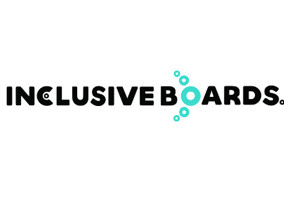Charity boards are not prioritising recruiting more diverse trustees, according to the Association of Chairs, with voluntary organisations’ boards less diverse than those in the largest businesses.
At the Goldman Sachs 2017 Charity Forum in London yesterday, a room of charity professionals heard that people from black and minority ethnic backgrounds make up only 6.3 per cent of people on charity boards, compared to 8 per cent in the FTSE 100 index.
Barbara Kasumu, co-founder of Inclusive Boards, said her organisation’s research last year showed more than 50 per cent of the top 500 charities had all-white boards.
She said: “I would challenge boards to ask the question: ‘who is not in the room?’ If a charity is primarily headquartered in London, it is important that the demographic is represented at board level.”
John Williams, vice chair of the Association of Chairs, said the reason charities had not made their boards more diverse, despite guidance from organisations including the Charity Commission, was that the issue was not “being prioritised”.
He said: “There is plenty of advice out there, not just from the Charity Commission but from NCVO and some of the think tanks. What's missing is an attitude to go out and make it happen.
“In terms of why aren’t enough BAME people or women on boards, it is because it is not being prioritised and it is not being focused upon.”
Williams urged charities to say to themselves “regardless of anything else we are actually this time going to have a pool of BAME candidates for this particular post”.
Considering whether this would call into question a trustee being appointed on merit, he said: “there’s a very white middle class definition of merit”, which includes an “unconscious bias”.
With regards to encouraging charities to recruit younger trustees, Williams said a recommendation from this year’s House of Lords’ report for every charity to have a digital trustee offers “a great excuse to have a slightly younger person on the board who actually might know a little bit about social media”.
But the panel was unsure when asked whether an introduction of paid trustees could increase the diversity of boards and the number of younger people sitting on them.
Kasumu said: “I think it’s a tough one because I get it on the one hand. That if you have to commit X number of days then it prices people out who can’t afford to do that. But I think it takes away personally from the essence of what it is which is to volunteer and to serve a charity.”
The panel were also asked by audience members whether they agreed with unitary boards, where a chief executive is also a board member.
Judith Brodie, interim chief executive of Beating Bowel Cancer, said she had experienced this when she worked in the NHS but preferred the traditional charity model of a separate board of trustees “because the accountabilities are much clearer”.
Williams said it was worrying “if your chief executive, who should be at board meetings 99 per cent of the time feel they need a vote to have a greater influence. It’s one of the magic bullets that isn’t really magic.”
Related articles












